Unfortunately , its not directly possible to activate the Managed HSM from Terraform . Currently , you can only provision it from terraform or ARM template but for activating it has to be done only from PowerShell and Azure CLI. It is also the same while updating the storage account with customer managed key and assigning a key vault role assignment.
If you use azurerm_storage_account_customer_managed_key, then you will get the below error:

Overall all HSM Key vault Operations needs to be performed on CLI or Powershell.
So , For workaround you can use local-exec in terraform to directly run it without performing separate operations.
Code:
provider "azurerm" {
features {}
}
data "azurerm_client_config" "current" {
}
resource "azurerm_resource_group" "example" {
name = "keyvaulthsm-resources"
location = "West Europe"
}
resource "azurerm_key_vault_managed_hardware_security_module" "example" {
name = "testKVHsm"
resource_group_name = azurerm_resource_group.example.name
location = azurerm_resource_group.example.location
sku_name = "Standard_B1"
purge_protection_enabled = true
soft_delete_retention_days = 90
tenant_id = data.azurerm_client_config.current.tenant_id
admin_object_ids = [data.azurerm_client_config.current.object_id]
tags = {
Env = "Test"
}
}
variable "KeyName" {
default=["C:/<Path>/cert_0.key","C:/<Path>/cert_1.key","C:/<Path>/cert_2.key"]
}
variable "CertName" {
default=["C:/<Path>/cert_0.cer","C:/<Path>/cert_1.cer","C:/<Path>/cert_2.cer"]
}
resource "null_resource" "OPENSSLCERT" {
count = 3
provisioner "local-exec" {
command = <<EOT
cd "C:\Program Files\OpenSSL-Win64\bin"
./openssl.exe req -newkey rsa:2048 -nodes -keyout ${var.KeyName[count.index]} -x509 -days 365 -out ${var.CertName[count.index]} -subj "/C=IN/ST=Telangana/L=Hyderabad/O=exy ltd/OU=Stack/CN=domain.onmicrosoft.com"
EOT
interpreter = [
"PowerShell","-Command"
]
}
}
resource "null_resource" "securityDomain" {
provisioner "local-exec" {
command = <<EOT
az keyvault security-domain download --hsm-name ${azurerm_key_vault_managed_hardware_security_module.example.name} --sd-wrapping-keys ./cert_0.cer ./cert_1.cer ./cert_2.cer --sd-quorum 2 --security-domain-file ${azurerm_key_vault_managed_hardware_security_module.example.name}-SD.json
EOT
interpreter = [
"PowerShell","-Command"
]
}
depends_on = [
null_resource.OPENSSLCERT
]
}
resource "azurerm_storage_account" "example" {
name = "ansumanhsmstor1"
resource_group_name = azurerm_resource_group.example.name
location = azurerm_resource_group.example.location
account_tier = "Standard"
account_replication_type = "GRS"
identity {
type = "SystemAssigned"
}
}
resource "null_resource" "roleassignkv" {
provisioner "local-exec" {
command = <<EOT
az keyvault role assignment create --hsm-name ${azurerm_key_vault_managed_hardware_security_module.example.name} --role "Managed HSM Crypto Service Encryption User" --assignee ${azurerm_storage_account.example.identity[0].principal_id} --scope /keys
az keyvault role assignment create --hsm-name ${azurerm_key_vault_managed_hardware_security_module.example.name} --role "Managed HSM Crypto User" --assignee ${data.azurerm_client_config.current.object_id} --scope /
az keyvault key create --hsm-name ${azurerm_key_vault_managed_hardware_security_module.example.name} --name storageencryptionkey --ops wrapKey unwrapKey --kty RSA-HSM --size 3072
EOT
interpreter = [
"PowerShell","-Command"
]
}
depends_on = [
null_resource.securityDomain,
azurerm_storage_account.example
]
}
resource "null_resource" "storageupdate" {
provisioner "local-exec" {
command = <<EOT
az storage account update --name ${azurerm_storage_account.example.name} --resource-group ${azurerm_resource_group.example.name} --encryption-key-name storageencryptionkey --encryption-key-source Microsoft.Keyvault --encryption-key-vault ${azurerm_key_vault_managed_hardware_security_module.example.hsm_uri}
EOT
interpreter = [
"PowerShell","-Command"
]
}
depends_on = [
null_resource.securityDomain,
azurerm_storage_account.example,
null_resource.roleassignkv
]
}
Output:






Note: Please make sure to enable Purge Protection on the HSM Keyvault and have all the required permissions on Management Plane (not added in code) and Control Plane (I have added in the code). To install OpenSSL you can refer this answer by mtotowamkwe on this SO thread.






